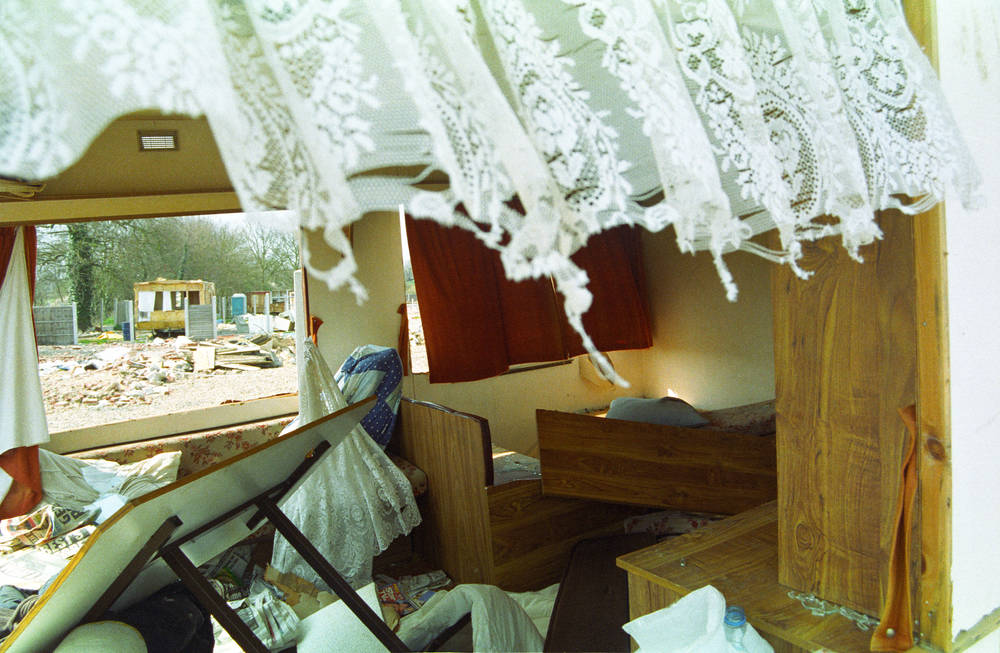While driving on a highway just outside London,
Daniel Baker noticed an abandoned Travellers’
camp. Being Roma, he has always been interested in exploring both the real and imagined spaces occupied by his people (and the various groups some call Gypsies, Sinti, Travellers, etc.)—and what these spaces tell us about the societal consensus that prides itself—despite the manifold instances of discrimination and oppression—on being democratic. Ruling over the majority population’s imagination are the stereotypes of Roma, shaped by Gypsy romanticism and Gypsy kitsch, mistaking misery for a free form of existence. These misconceptions are uncovered in scenes such as those encountered by Baker showing the signs of violent eviction. Photographed offhandedly, the imagery discloses a site that might slowly be becoming emblematic of our times as more and more people are pushed to the margins of society—at least the society we have known until today in the so-called West. The pictures thus contain pockets of knowledge for how to live in a permanent condition of endangerment and denial. They teach us, on the brink of a potentially new era in which both the security of the state and the sanctity of free market capitalism are gradually but surely rendered as unsustainable myths, to not only understand what in the moments of emergency one needs to take in order to survive, but more importantly, what one needs to leave behind.
